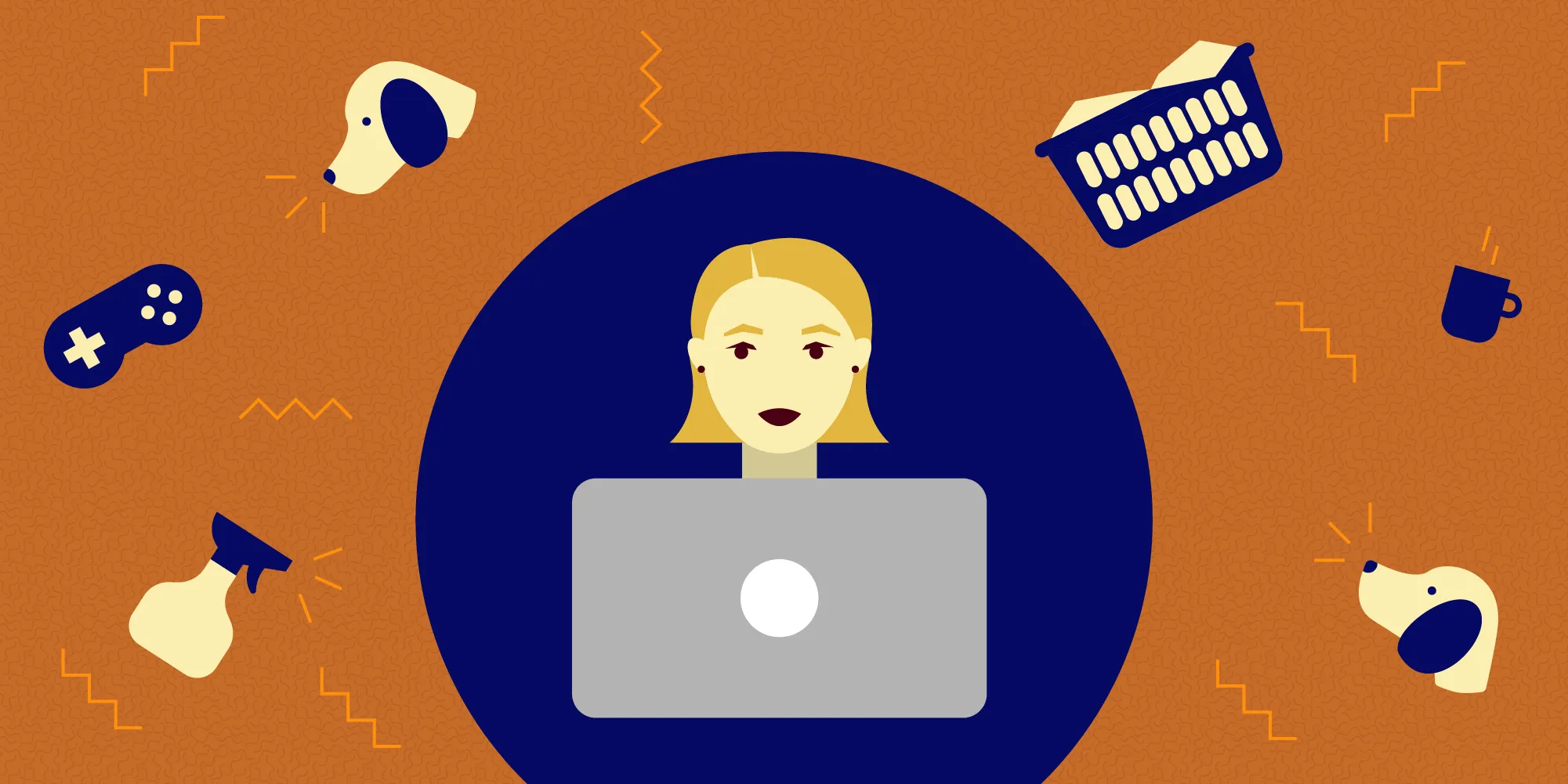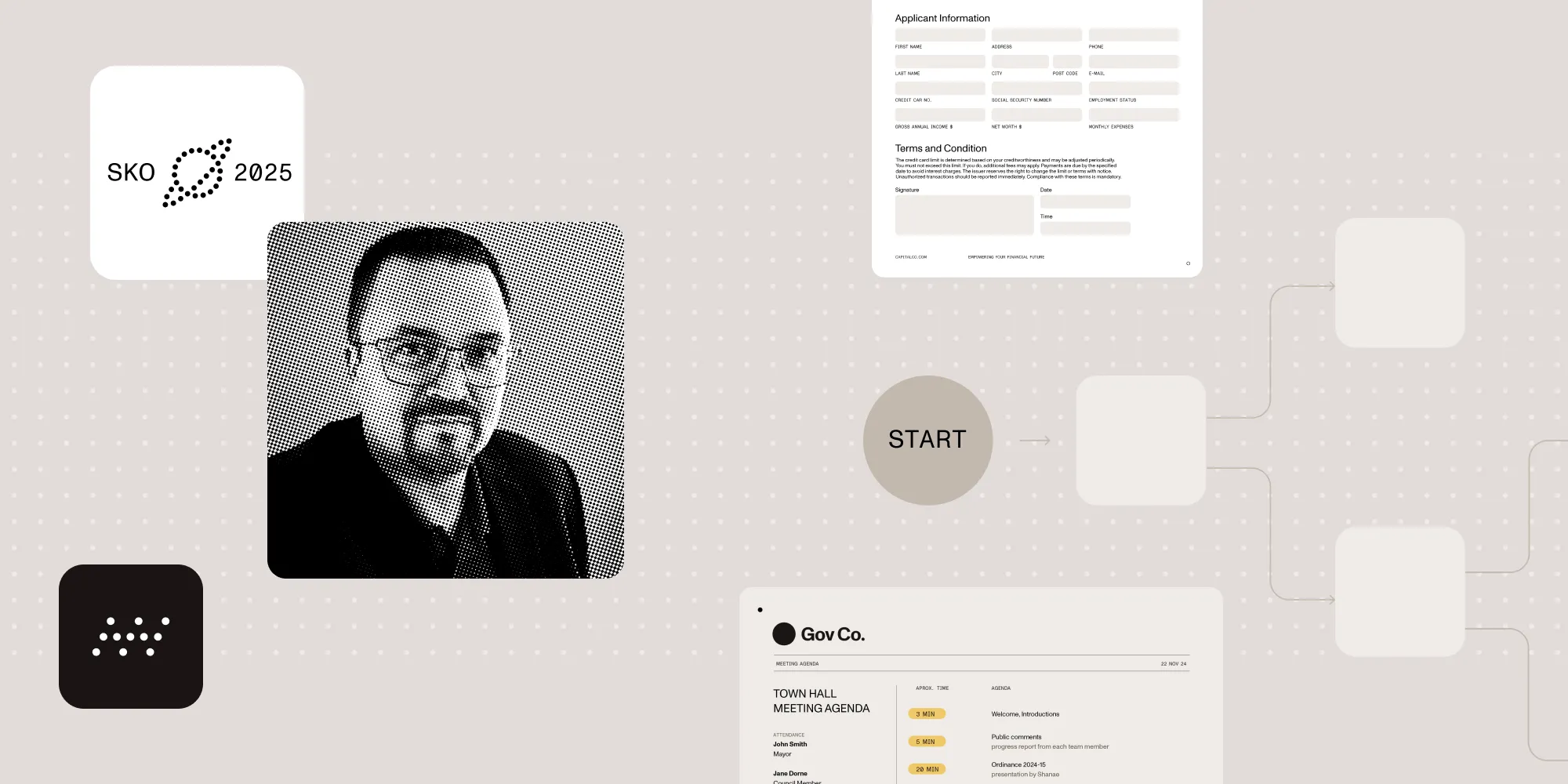9 Tips to Help You Work Effectively from Home
Table of contents

In our remote work series, we want to offer some advice to help you make the most of working from home. The two of us joined PSPDFKit this year, but we bring with us more than six years of experience in working from a home office. Even though it has been challenging at times, we’ve managed to find a rhythm that works well for us.
In this article, we’ll outline nine tips to help you get the most out of your work day and be an effective remote employee.
Getting into the Working Mindset
The way you start your day will set the tone for the rest of it. Your mornings shouldn’t be about ticking boxes off your list, but rather about doing things calmly and with no rush so that you can sit down in front of your desk with a feeling of purpose and confidence. Adopting a morning routine, getting dressed for the day, and setting up your workspace are all things that help with this.
Adopting a Morning Routine
Even though having a flexible schedule means that you don’t need to set the alarm in the morning, we still find it helpful to stick to a sleeping routine. Try scheduling your bedtime or even setting up a reminder. This will improve your sleep, and you’ll feel much better if you are well rested.
No snoozing! Snoozing will take away precious time in the morning, making you feel like you’re running behind, and causing you to rush through your morning routine. If you’re a snoozer, try placing your alarm clock anywhere other than where you’re sleeping — not too far away though, as you still want to hear it in order to get up. We’d suggest placing it near your bathroom. This way you can stop the alarm and hop right into the shower. Because nothing replaces the reinvigorating I-got-this feeling than taking your morning shower.
Take your time for breakfast and coffee. Well, maybe you’re not a fan of coffee (how are you even awake every day?), but sitting down at your kitchen table to eat breakfast while chatting with your family members or roommates just a little bit longer than usual (since you’re not commuting very far) is a great way to start your day. And if you manage to squeeze a workout into your morning routine, you’ll be a hero to us! Getting those endorphins flowing will trigger a positive feeling in your body, helping you start your day in the right mood.
Getting Dressed
We know it might seem strange to you that we would even mention this. Of course, you think you’re going to get dressed every day. But you’re not going to. You’ll be in your pajamas or your I’d-never wear-this-in-public clothes a lot. And also in your bathrobe (so make sure it’s a nice one).
But do try getting dressed as if you’re going to the office as often as possible, because from our experience, it really does help with motivation by restructuring your day from home time to work time. Browse through this fashion guide(opens in a new tab) for inspiration.
Setting Up Your Workspace
Try setting up a dedicated office room or at least a small office area. Keep your desk organized by only having things you truly need at arm’s reach. If we may borrow a concept from Marie Kondo: If it doesn’t spark joy (or efficiency), get rid of it (or put it somewhere else).
Avoid working on a sofa or in bed. Those might seem like a perfect choice at first (yippee, I’m working from home, ditching the old office chair, replacing it for something comfy!), but either they get too comfortable, or after some time they give you serious back pain — and carpal tunnel syndrome which, trust us, is terribly uncomfortable. So beware of the inviting sofa; it’s a trap!
Listening to music has proved to be stimulating for us. Not all people enjoy listening to music while they’re working, but if you’re anything like us, this will take you to that sweet zone of concentration, and it might make you more productive as well. Here are some of our favorite music choices in case you’re looking for recommendations:
- Intergalactic FM(opens in a new tab) disco station
- NTS(opens in a new tab)
- Red Light Radio(opens in a new tab)
Whichever you decide, you can set up your favorite artist-generated radio station on Sonos or Apple Music.
Structuring Time
Switching from going into an office to working from home can easily make it feel like your usual Monday is now a Saturday. You’ll take that extra hour of sleep, start work a bit later, do laundry in the meantime, and then work later into the night. You can get into this habit way too easily, and it will affect your productivity. Work will start to mix with your personal time, and after a while, this will start to bother you. That’s why structuring your time and consistently sticking to your schedule is important. It will make your day predictable, thereby preventing you from feeling (too) anxious. To do this, defining your working hours, minimizing interruptions, and taking a break are all key.
Defining Working Hours
Some people prefer starting work early and others prefer sleeping in and starting at a later hour. Which you choose depends on the type of work you do and whether you need to be available at certain hours, along with your lifestyle, possibly your partner’s schedule, and your personal preference. Either way, the important thing is defining your work hours and sticking to them.
Perhaps you don’t know what kind of schedule works for you yet, which is why it’s important to listen to your body, test what suits you best by observing your productivity, and then try getting into a routine. Even if you’re not a morning person per se, you might surprise yourself and discover your inner morning persona (speaking from personal experience).
What’s also important is knowing when to stop working. It’s easy to dive into work and forget about time if you don’t need to go home (since you’re already there). So try sticking to doing eight hours of work per day. Sure, there are days when you’ve got your working mojo on and working longer makes sense, but try not to get carried away every day. Among other things, having a routine and schedule to follow should help. There are many time-tracking apps out there that can assist you in knowing when it’s time to take a break or finish up your work day.
Minimizing Interruptions
Constantly being interrupted while working — whether by someone else, distractions around you, or your own brain — will make it seem as if you’re working the whole day. Try working without interruptions in order to maintain a better work-life balance. If you live with other people, let them know when they shouldn’t disturb you. You should also avoid doing household chores between your “office” hours, as they will unnecessarily shift your focus. And trust us, these things can wait.
There will be exceptions of course, and you might want to take an hour for something you want to do in between work. But that’s the beauty of remote work: You get to organize your time. Just try not to get distracted too much.
Taking a Break
Working without a break will leave you feeling exhausted and stressed. That’s why it’s important to take a break. Breaks have a role in our lives similar to that of sleep — they help our brain review and process the retained information. Taking a break will help you refresh your thoughts, and it will actually increase your productivity and creativity.
So why not take the break to do something you weren’t able to do when working in a non-home office? Enjoy your break by taking your dog for a walk, playing with your cat, or having a chat with your parrot. You can finally stop feeling guilty about leaving your pets alone all day! 😺 One of the biggest advantages of working from home is also the ability to prepare your own meals — so go ahead and enjoy some homemade cooking.
Being Accountable
Being physically distant from your coworkers means you are being judged entirely by your output — how much you deliver, the time frame you deliver it in, and what the quality of your work is. How much time you spend at your desk simply won’t matter anymore. That’s why it’s super important to take initiative in and ownership of the work you do. This should also matter when you’re not working from a home office, but it becomes more obvious when working remotely. Some ways to do this include settings tasks, goals, and deadlines; talking to your team openly and regularly; and being trustworthy.
Setting Tasks, Goals, and Deadlines
The simplest tip for getting more things done is to make a daily list of things you’re trying to achieve and check things off as you go. Working remotely often means that you become a manager of one(opens in a new tab), which means you get to set your own list of tasks, goals, and deadlines. Be realistic yet ambitious when setting them. If you’re working on a big project, divide it into smaller, manageable tasks. Making and checking off lists will frame your achievements and give you an overall sense of accomplishment.
Here at PSPDFKit, we all write an Out for Today report at the end of every day. In a similar fashion, you might try listing out things you spent your day working on. Adopt a habit of writing out what you will be doing over the course of the week and what you have done in the past week (having your daily Out for Today reports will prove to be very beneficial in this case). This way, you can track progress on the work you’re doing and see how realistic your goals are.
This kind of planning is necessary when working remotely so that everyone on the team is informed about what you’re working on, and also so that you have a plan for what’s next on your list. This approach should also minimize your risk of procrastinating because you’ll know what you have to do and how long it should take to accomplish it.
Talking to Your Team
Communication is king when working from home. Using technology and determining which channels to use for different types of communication is a must. Try using an app such as Slack for daily communication with the team, along with a project management app to help you track progress and results.
Be clear in your communication and cautious with the tone of your messages. Remember that the person on the other side cannot see your facial expressions or hear the tone of your voice. Get your grammar in order, and please be considerate and don’t SCREAM AT PEOPLE. Use emojis when appropriate.
As already mentioned, you need to let everyone on your team know what you are working on, but that’s not all there is to it. Being at home and away from your coworkers means you can also get lonely or start feeling disconnected from everyone. A good way to keep in touch with all your coworkers when you start working is by simply writing a good morning message on Slack, just to let them know you’re there. We’re a social bunch, so setting up a call with your coworker(s) to talk about random, non-work-related stuff should be encouraged, and it will help you stay connected on a different, friendlier level, which will result in a better company culture.
Being Trustworthy
Working remotely requires trust — trust that you’re actually working when you say you are and are capable of doing the work independently. Gaining trust from your employer might be tricky if they’re not used to having people work remotely. But being clear in defining and communicating your tasks and goals, and then ultimately achieving them, should establish that trust.
You should also trust in yourself and your ability to overcome the initial challenges of working remotely.
Taking Full Advantage of Working from Home
The most important thing to remember while working from home is to take full advantage of the situation. This is because working from home will enable you to:
- Feel more comfortable and less stressed. There’s no lengthy commute, so you’ll be safer, and you’ll feel more at ease being home.
- Eat more homecooked meals. It’s not only healthier, but it will also save you some money!
- Enjoy a flexible schedule, explore what works best for you, and stick to that.
- Save time because there’s zero commuting. Spend that extra time with your loved ones, or take the time for some self-care.
The advantages of working from home can have a great impact on the quality of your life, making you healthier, helping you feel more motivated, and resulting in you feeling more productive and efficient at the work you do.
Conclusion
We hope you find the above tips useful and will implement them in your daily work life. We believe they’ll help you be more effective with your work time, be less stressed, and be happier and healthier overall.
If you want to read more on the topic of remote work, take a look at our blog posts below:







